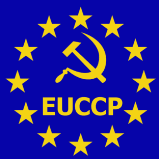Hybrid Fabrications versus Greek Originality
The Guardian was beaming with confidence this July 11 announcing Tim Whitmarsh’s edited book, The Romance Between Greece and the East, as a major breakthrough in scholarship recasting the ancient Greek world “from an isolated entity to one of many hybrid cultures in Africa and in the East”. Whitmarsh’s book is framed along the same lines as Martin Bernal’s earlier attempt in Black Athena (1989) to place the origins of Greece in Africa and the Semitic Near East. Whitmarsh’s calls the argument that the Greeks owed their brilliance to themselves, their own ethnicity as Indo-Europeans, a “massive cultural deception”.
In our Western world of immigrant multiculturalism any idea which attributes to Greeks, Romans, medieval Christians or modern Europeans any achievement — without including as co-partners the Moslems, Africans and Orientals — is designated as a massive deception. The scholarship promoted by our current elites demands a view in which Europeans don’t exist except as hybrids, borrowers, and imitators. But the historical and archeological evidence adduced by Whitmarsh and multiculturalists in general never goes beyond showing that there were connections between the Greeks (or Europeans generally) and their neighbours. They have an easy time showing what many have shown before, that the Greek mainland was connected to the Mediterranean world via trade, travelling, colonizing activities, and the residence of some Greeks outside Greece.
They also repeat as new discoveries what European scholars had already started showing in the eighteenth century, that ancient Greece was preceded by Mesopotamian and Egyptian civilizations and that the Indo-Europeans who arrived in the Greek mainland and established the Mycenaean civilization in the early second millennium borrowed some basic civilizational tools from these older civilizations, including some mythological motifs and the alphabet from the Phoenicians. From these general borrowings, and without even caring to understand the unique world out of which the Mycenaeans came, a world which originated in the steppes and was characterized by horse riding, chariot fighting, aristocratic liberalism, and an ethos of heroism, which was vividly captured in the Homeric epics of the eighth century (an ethos utterly absent in the Epic of Gilgamesh), the multicultics rush to conclude that the achievements of the archaic and classical Greeks — such as Pindar, Sophocles, Thucydides, Aeschylus, Anaxagoras, Anaximander, Euripides, Thales, Heraclitus, Parmenides, Socrates, Plato, and Aristotle — were “hybrid” achievements. Read more






